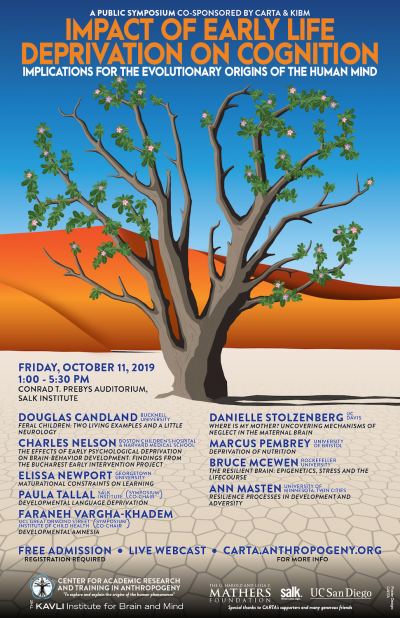Impact of Early Life Deprivation on Cognition: Implications for the Evolutionary Origins of the Human Mind
Paula Tallal, Salk Institute for Biological Studies
Faraneh Vargha-Khadem, UCL Great Ormond Street Institute of Child Health
Unlike the case with most other animals, much of human brain development and maturation occur after birth, a process that continues into early adulthood. This unusual pattern allows for greater influences of environment and culture on the emergence of the adult mind. Ethical considerations disallow most experiments that might address the interactive contributions of nature and nurture in this process, which likely played a key role in the origins of the human species and in the evolution of distinct features of our minds. For similar reasons the relative importance of various factors cannot be easily studied, nor teased part. This symposium will address the matter to the extent possible based on available evidence, ranging from experiments by ancient monarchs and lessons from “feral” children of various kinds, to the follow-up of Romanian orphans, etc. while addressing comparative and neurobiological issues.
KIBM's 2016 symposium on the Influence of Early Experience on Adult Brain Organization and Function is a logical prelude to this one.
This symposium is co-sponsored by the Center for Academic Research and Training in Anthropogeny (CARTA).
Event Sessions
Media for each talk can be played by clicking on icons in the "Media" column, or by clicking on the individual talk titles below and then the attachment file at the bottom of the page.










